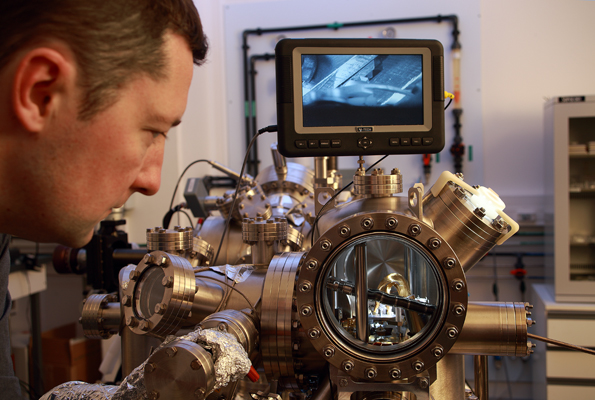Research Results, Presented at 2016 VLSI Symposia, Suggest that FDSOI Technology Can Be Harnessed for Several More Generations of Digital Devices
GRENOBLE, France – June 17, 2016 – Leti, an institute of CEA Tech, said today its teams have demonstrated how Fully Depleted Silicon on Insulator (FDSOI) technology can be scaled downwards and how the experience in thin-film engineering built on FDSOI development can be harnessed for innovative architectures and computing paradigms.
At the recent 2016 Symposia on VLSI Technology and Circuits, Leti reported how performance boosters can be successfully implemented on a short time scale to increase performance of next-generation FDSOI devices using material engineering and design/technology co-optimization. With its current performance and flexibility, the FDSOI platform can be extended to the 10nm node. Looking further ahead, thin-film management expertise will be leveraged to design high-performance stacked nanowires.
Based on its expertise in CMOS technologies and thin-film integration, Leti also shared its latest results on CoolCubeTM high-density 3D integration. For the first time, 3D-via density above 10 million/mm² has been demonstrated and high CMOS FDSOI performance has been achieved within a low-temperature integration. CoolCubeTM, which powerfully leverages the benefits of the third dimension, provides designers with a wide range of design opportunities.
Through extreme device scaling, Leti and Inac, a fundamental research division of CEA, are exploring the emerging quantum computing era with an extended use of FDSOI technology for chip design and fabrication.
“These results, which highlight the technology depth of the Grenoble ecosystem, stem from more than a decade of research on ways to use FDSOI-nanowire silicon technologies to design devices with an accurate control of single charge,” said Maud Vinet, Leti’s advanced CMOS manager. “We are currently leveraging this R&D activity, which relies primarily on extensive research in low-temperature physics of ultra-scaled MOS FET properties developed by Leti and Inac, to investigate the potential that silicon FDSOI technology has for quantum computing.”
Leti and its long-time research partner Inac have been investigating a silicon-on-insulator technology for quantum computing applications that could rely on the scalability originally developed for CMOS VLSI circuits. Applying Inac’s expertise in cryogenic electrical measurements and Leti’s SOI nanowire FET technology, the teams also demonstrated the co-integration of quantum devices with conventional CMOS control electronics (ring oscillators) on 300 mm SOI substrates.



















